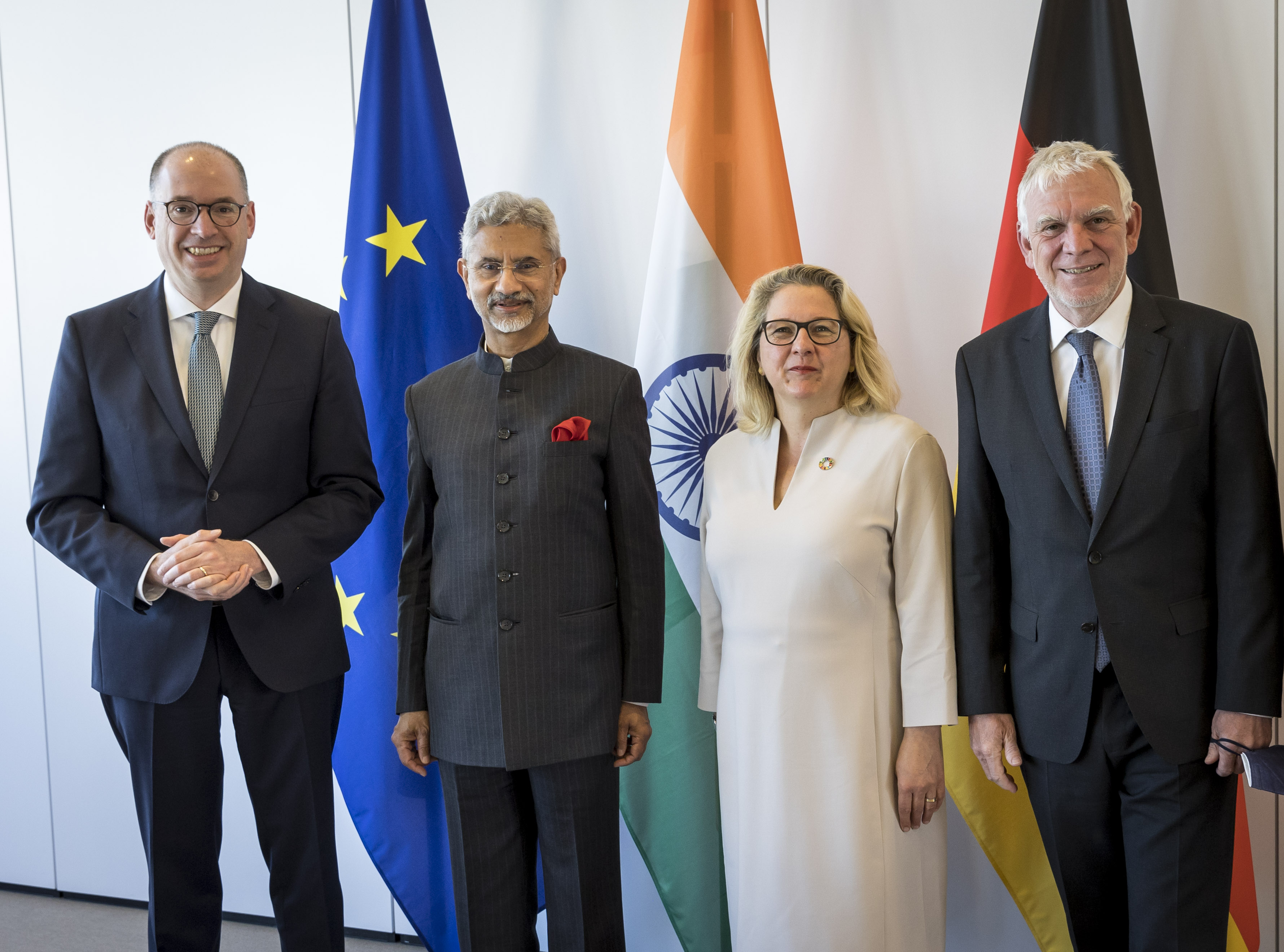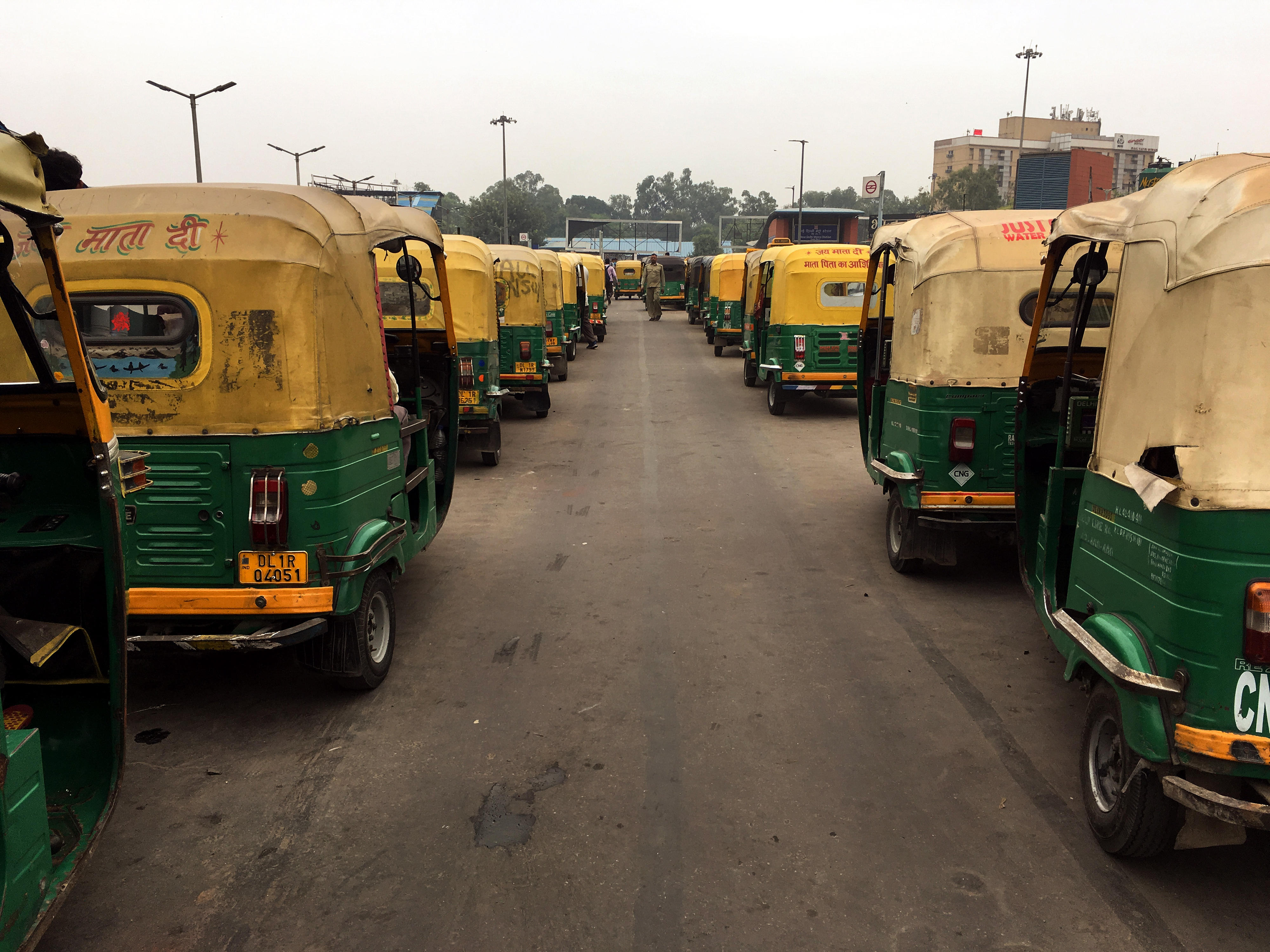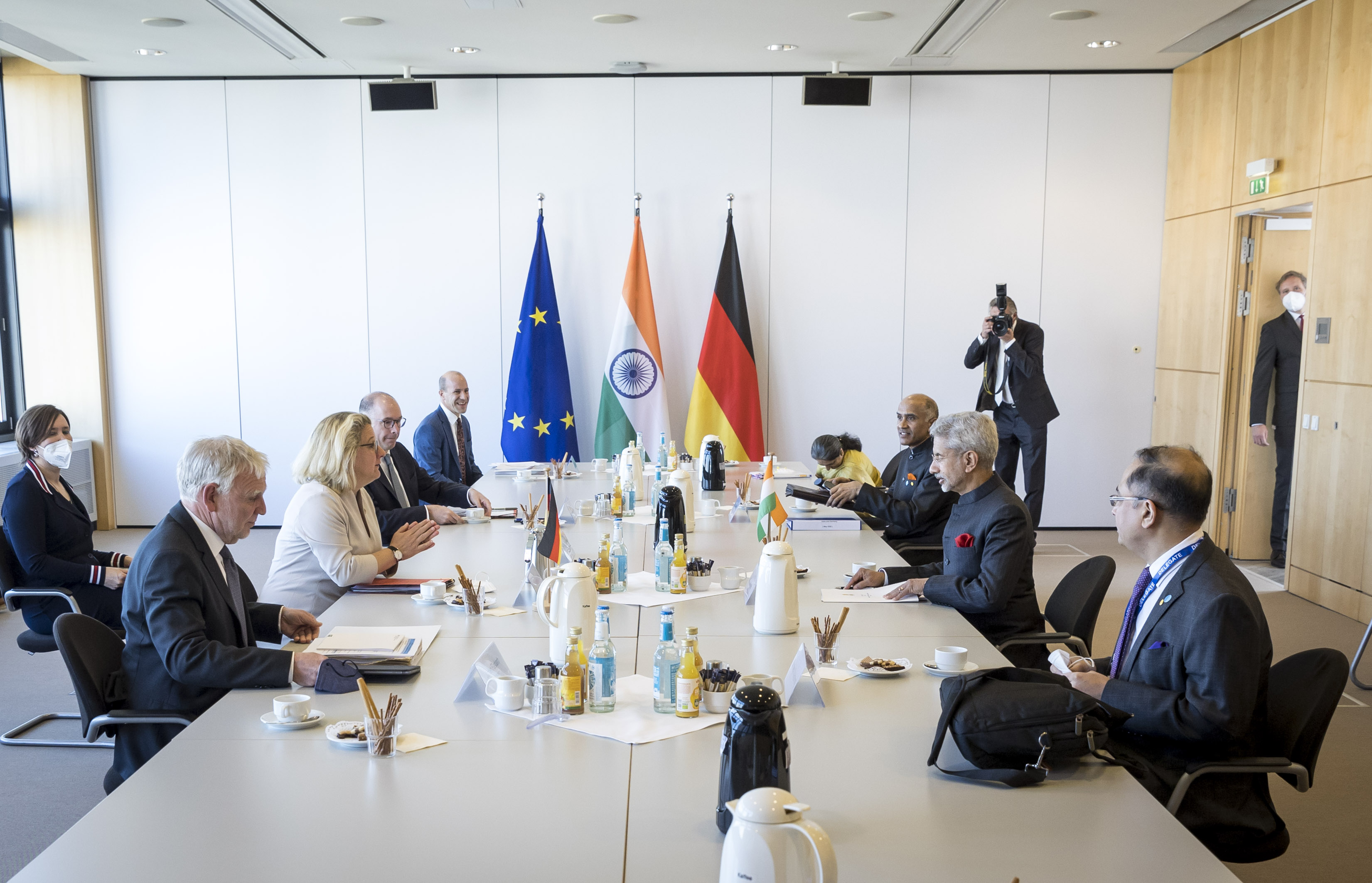Cabinet consultations Cooperation with India: Development Minister Schulze signs three agreements
Parliamentary State Secretary Niels Annen, Indian Foreign Minister Subrahmanyam Jaishankar, German Development Minister Svenja Schulze and State Secretary Jochen Flasbarth at the Indo-German cabinet consultations in Berlin on 2 May 2022
Press release 2 May 2022 | Berlin – India and Germany are aiming, during today’s cabinet consultations, to deepen their cooperation. At the centre of the talks are development policy topics which are important for the future: joining forces to tackle the climate crisis, scaling up renewable energies and also agroecology approaches in the agricultural sector in India. Federal Development Minister Svenja Schulze and Indian Ministers today signed three joint declarations in connection with these topics.
Indo-German cabinet consultations in Berlin on 2 May 2022
Together with Indian Foreign Minister Jaishankar, Federal Minister Schulze signed a joint declaration of intent on the Indo-German Renewable Energy Partnership. This expands the cooperation on solar technologies first launched in 2015 and puts a key emphasis on innovation and inclusive investment. It is intended that, between 2020 and 2025, one billion euros will be made available for this.
Furthermore, Ms Schulze and S. Jaishankar also signed a Joint Declaration of Intent on Triangular Cooperation. It has thus been agreed that, with a view to reaching the world’s climate and sustainability goals, the Indian and German sides will work with countries in Africa, Asia or Latin America, sharing and providing appropriately adapted experience and technical cooperation.
With Indian Agriculture Minister Tomar, Minister Schulze agreed a lighthouse initiative on Agroecology and Sustainable Management of Natural Resources. In the period up to 2025, funds in the amount of up to 300 million euros are to be provided for this initiative.
Prime Minister Modi and Federal Chancellor Scholz today signed a Green and Sustainable Development Partnership, establishing a new and bigger framework for cooperation between India and Germany, which will ensure that it is consistently aligned with the sustainability agenda of the United Nations.
The Federal Development Ministry (BMZ) is supporting India with more than one billion euros a year. Over 90 per cent of the BMZ projects in India are helping to save greenhouse gas emissions or to make adaptations to climate change. Besides energy issues, other priority areas of German development cooperation with India have to do with sustainable urban development and green urban mobility, and with the protection and sustainable management of natural resources.


